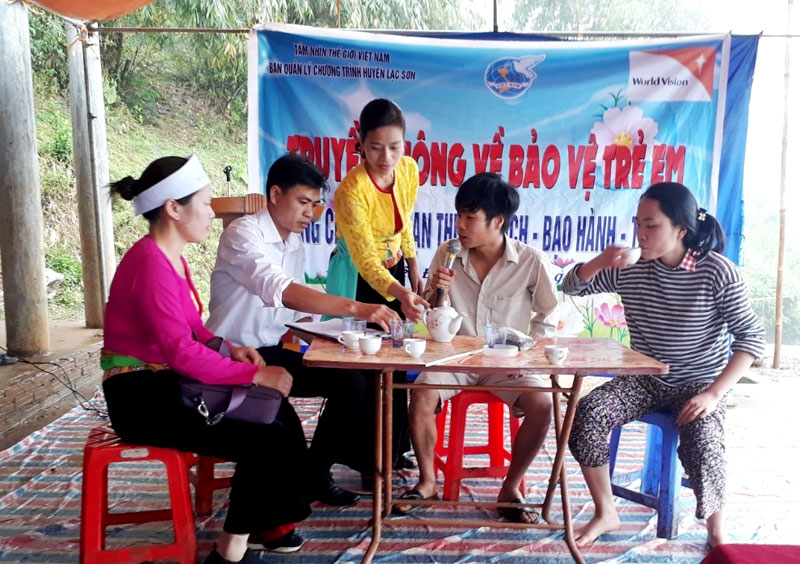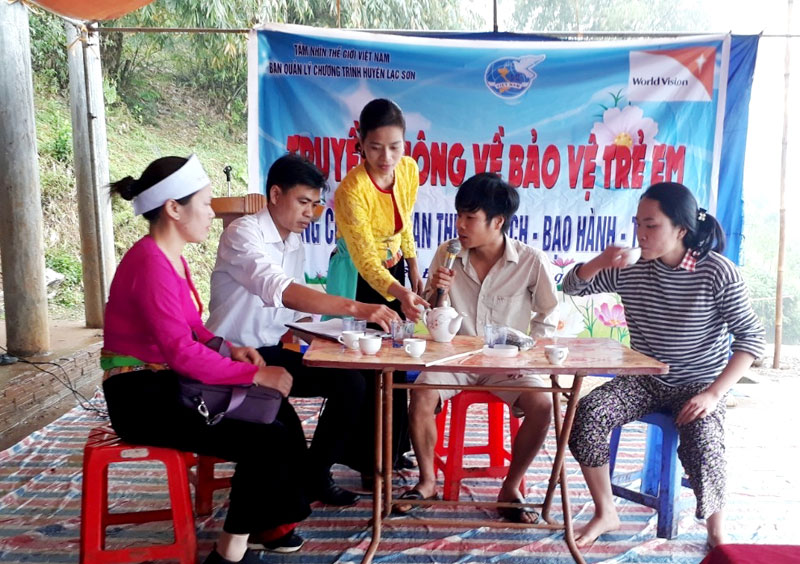



The regional development programme of Lac Son in collaboration with the district police and the Women’s Union of Mien Doi commune hold communication activities on children protection and prevention of accidents, violence and child marriage.
Reasons behind the situation vary from poverty, jealousy to drinking. Violence affects all members in the family, especially women and children. Since the promulgation of the Law on Domestic Violence Prevention and Control, the number of violence cases in the district has been reduced.
To deal with difficulties in the field, the district has focused on giving professional training and interfering capacity improvement to local officials as well as settlement of violations of the Law on Domestic Violence Prevention and Control, while supporting victims of domestic violence.
Specifically, over the past 10 years, the district has held 11 training courses for 1,000 full-time and part-time local officials in charge of family affairs of communes, towns and the steering committee for domestic violence prevention and control, as well as head of happy family clubs.
So far, all the 29 communes and wards of the district have set up their steering committees for domestic violence prevention and control and facilities to support victims of domestic violence, along with 370 "sustainable development families” clubs, clubs for steering committee for domestic violence prevention and combat, and 30 shelters for the victims.
The district has organised 280 communication events at the district level, and over 2,000 other campaigns at the communal and ward levels, attracting more than 550,000 officials and locals.
Communication forms have been diversified, including panels, mobile radio, bulletins, and radio systems in communes and wards. The efforts have helped minimise the number of domestic violence cases, promoting the campaigns of building happy families and cultural families.